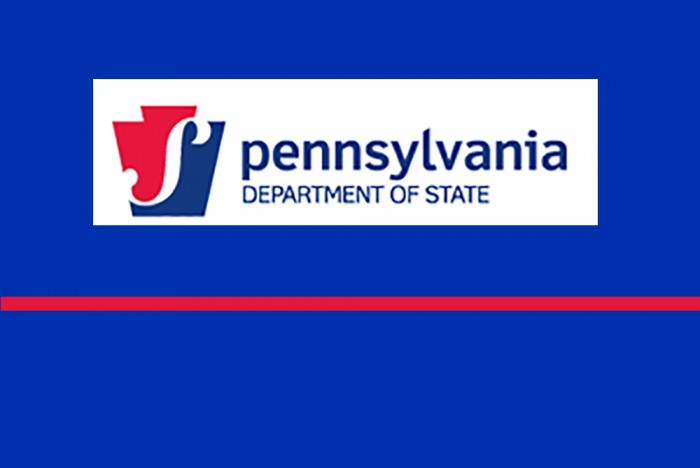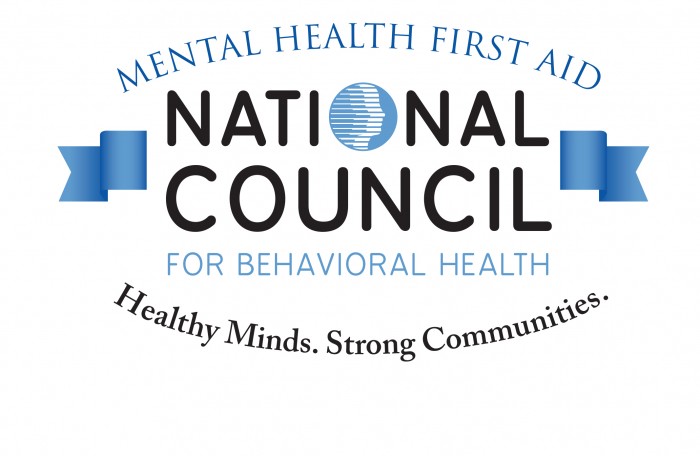By Chris Comisac, Bureau Chief, Capitolwire
HARRISBURG (May 28) – Despite a failed attempt by House Democrats to derail the budget approval process, a package of budget bills – including a $25.1 billion General Appropriations bill and legislation to distribute roughly $2.6 billion of federal CARES Act funding – is on its way to the Governor following the completion of Thursday’s session.
The stop-gap Fiscal Year 2020-21 General Appropriations bill, House Bill 2387 – approved on a 44-6 Senate vote – includes, according to House and Senate fiscal notes, approximately $25.1 billion in state General Fund spending, with much of that going towards flat-funding, for a full fiscal year, of early education through higher education, mandated human services programs, state pension plan payments and the Commonwealth’s debt service.
Other government operations, however, are funded at the same level as the current fiscal year for five months, which will require lawmakers and the Governor during the next few months to figure out how to pay for the other seven months of 2020-21, along with any additional spending they might want or need to do in excess of the flat funding already approved.
In addition to that, they’ll need to develop a way to address what could be around a currently estimated $1.3 billion to $1.5 billion shortfall that has been projected by the state Independent Fiscal Office for the current 2019-20 fiscal year, though that figure remains in flux given the current fiscal uncertainties for the state and nation due to the COVID-19 outbreak.
“The revenues to support budgetary spending decisions are primarily based on historical trends and experience,” said Senate Appropriations Committee Majority Chairman Pat Browne, R-Lehigh, prior to the HB2387 final vote early Thursday. “So with current condition well outside of anticipation, and well outside prior experience, and the dramatic uncertainty of what it may lead to in the near future, the most pertinent question must ponder and must effectively answer is ‘Can we confidently proceed consistent with past budgetary actions in developing our spending plans, and if not, how do we proceed to ensure the most accurate and responsible financial path for the commonwealth over the next fiscal cycle?’”
“Considering all relevant circumstance in front of us, Pennsylvania’s current dire economic conditions, the lack of clarity as to when and how these conditions will adjust and hopefully improve during the next fiscal cycle, and the mounting revenue losses we are currently realizing, it is my sincere opinion – which I’m confident I share with the Governor’s Budget Secretary and my appropriations colleagues in the House – that our fiscal line of sight currently and unfortunately does not extend through June 30, 2021,” Browne explained. “Accordingly, it would not be responsible fiscal policy on behalf of the taxpaying citizens of this commonwealth to advance and enact, consistent with usual practice, a complete Fiscal Year 2020-21 spending plan at this time.”
Browne went on to say that a five-month spending plan, with the aforementioned full-year funding for several important budget components, “is within our line of sight,” and it will serve as “a financial bridge that is sturdy enough to advance and provide for the needs of our citizens, reliable enough to weather the turbulent currents of financial uncertainty flowing beneath it, and reinforced enough to accommodate the long-term expectations of outside public markets.”
“It will provide sufficient resources to meet the commonwealth’s important obligations while securing adequate time to ascertain the commonwealth’s complete financial landscape through the third quarter of 2020,” Browne said.
Browne’s Democratic counterpart concurred with that assessment of HB2387, arguing a “unprecedented response” to the current fiscal situation is necessary.
Saying he was proud to have worked with Browne and others on the bill, Senate Appropriations Committee Minority Chairman Vince Hughes, D-Philadelphia, prior to the final Senate vote said, “I think this is the appropriate decision at this time.”
And to those who have voiced opposition to the legislation, Hughes asked, “What’s your plan?”
Acknowledging that items within the stop-gap FY2020-21 budget (HB2387) are funded at the same level as the current fiscal year, he also noted that nothing prevents state lawmakers from appropriating more money for things when they revisit the budget to provide for the final seven months of FY2020-21.
Some of those who have voted against the bill, both on Thursday in the Senate and on Tuesday in the House, raised concerns about the amount of funding provided within the budget for education or education-related items.
Reacting to HB2387’s approval, the state’s largest teachers union – the Pennsylvania State Education Association (PSEA) – said the bill reinforces that “education funding is a top priority and helps provide stability for school districts at a difficult time.”
“Gov. Wolf and the Legislature continue to make public education a top priority even as our schools face unprecedented challenges in the wake of the COVID-19 pandemic,” said PSEA president Rich Askey. “This commitment from our state leaders will help districts keep educators and support staff on the job meeting the needs of students when schools reopen and keeping everyone in them learning, healthy, and safe.”
The Senate also sent to the Governor the budget’s preferred (for various state government agencies, bureaus and offices) and non-preferred (for Pennsylvania’s state-related universities) appropriations bills, while sending to the House other bills – most of them code bills – that further implement the state budget. By early Thursday evening, the House had approved those measures, sending them to the Governor’s desk, all for his expected approval.
Additionally, lawmakers approved Senate Bill 1108, which was amended on Thursday in the House of Representatives to appropriate a substantial portion of the $3.9 billion in federal CARES Act dollars appropriated to Pennsylvania.
According to a fiscal note prepared by the House Appropriations Committee, the approximately $2.6 billion will be distributed to the following state agencies (with the money in parentheses): Pennsylvania Commission on Crime and Delinquency ($150 million); Department of Agriculture ($40 million); Department of Community and Economic Development ($930 million); Department of Education ($9 million); State System of Higher Education ($30 million); Pennsylvania Higher Education Assistance Agency ($42.2 million); Department of Health ($20 million); Department of Human Services ($1.106 billion); Pennsylvania Emergency Management Agency ($100 million); and the Pennsylvania Housing Finance Agency ($175 million), for mortgage and rental assistance. The remaining $1.3 billion is put into a restricted revenue account – the COVID-19 Response Restricted Account – which legislative leaders said could be used at a later date to address additional virus-related costs.
As for more specifics about where that money will go once it gets to the state agencies, House documents suggest $625 million of the $930 million allotted to the Department of Community and Economic Development (DCED) will go to the 60 Pennsylvania counties that didn’t directly receive funding from the federal government (Allegheny, Bucks, Chester, Delaware, Lancaster, Montgomery and Philadelphia counties got dollars directly) with the distribution to be through a population-based formula, meaning counties with larger populations, with York County being the largest of the remaining counties, get a larger portion of the overall distribution. York County’s share would be roughly $40.5 million, while the smallest Pennsylvania counties – Cameron, Sullivan and Forest counties, each with populations below 10,000 – would receive the minimum amount of $1 million.
Another $225 million of DCED funding will be for the agency’s Statewide Small Business Assistance Program, while $50 million of the allotment will be for hazard pay, $20 million will be for the state’s Cultural and Museum Preservation Grant Program, and $10 million will be for the agency’s Food Access Initiative.
Of the Pennsylvania Higher Education Assistance Agency’s $42.2 million allotment, $30 million will be for grants to students, with the other $12.2 million for institutional assistance grants ($5 million), higher education for the disadvantaged ($5 million) and student loan interest forbearance ($2.2 million). The Education Department will also drive out $7 million to the Pre-K Counts Program and $2 million to the Head Start Program. Also, education-related is the $150 million allotted to the Pennsylvania Commission on Crime and Delinquency, with those funds to be transferred to the School Safety and Security Fund.
There will be $10 million for vaccine research out of the Health Department’s $20 million allotment, with the other $10 million going to community-based health care centers.
Agriculture’s $40 million will be evenly split between its State Food Purchase Program and its Dairy Assistance Program.
And, during previous weeks, lawmakers have approved bills containing CARES Act distributions for Pennsylvania long-term care services used by both the state’s elderly and disabled populations, as well as the state’s first responders.
SB1108 incorporates much of the same items that have been in those other bills, earmarking from the Department of Human Services’ $1.106 billion allotment $632 million for long-term living programs (nursing homes get $245 million, personal assistance services get $140 million, assisted living facilities and personal care homes get $50 million, adult day services get $13 million, residential habilitation gets $1 million and ventilator services get $8 million); $260 million for the state’s Intellectual Disabilities Community Waiver Program; $50 million for the state’s Community Health Choices Program; and $10 million for the Long-term Care Managed Care Program. Additionally, from DHS’ funds, another $10 million will go for critical access care hospitals, there will be $10 million for domestic violence programs, $10 million for homeless assistance services, and, with an eye on ensuring parents can return to work, $116 million will be dedicated to child care.
Another $50 million will be made available from the Pennsylvania Emergency Management Agency’s allotment, for grants to Pennsylvania’s fire and EMS service providers; the other $50 million in PEMA funds are to replace special funds that would have provided dollars for health care system assistance.
The two chambers on Thursday also approved House Bill 2510, a Fiscal Code bill accompanying the state budget to implement appropriations, that will implement $2.1 billion of the appropriations within SB1108. HB2510 also has the state Department of Human Services create regional health collaboratives, within six regions of the state as defined by the department, with the health collaboratives focused on protecting residents in long-term care facilities from COVID-19; the regional health collaboratives program will receive $175 million from the $632 million set aside for nursing homes, long-term care, and personal care.
Additionally, HB2510 requires any appropriated funding that remains unspent by Dec. 1, 2020, to be redistributed through the County Block Grant program. The remainder of the $2.6 billion in CARES Act funding is implemented in other budget-accompanying bills that were sent to the Governor Thursday.
Likewise sent to the Governor on Thursday was the budget’s Public School Code, House Bill 1210, which implements one of SB1108’s appropriations, as well as many of the education-related appropriations within the General Appropriations bill (HB2387).
With regard to the SB1108 appropriation, HB1210 directs roughly $215 million to school districts to help pay for costs associated with protecting children, cleaning buildings and modifying structures in response to the COVID-19 pandemic: $150 million in federal dollars for the School Safety and Security Fund, to which another $49.8 million in federal dollars will be transferred out of the General Fund budget (with that $49.8 million transfer implemented by a second Fiscal Code bill, House Bill 1083). Another $7.5 million will be used for community violence prevention grants, while another $7.5 million will be available for intermediate units to address COVID-19 issues.
As for the other education subsidies from the General Fund contained within HB1210, the total distribution is nearly $7.9 billion: Basic Education Funding for general operating purposes ($6,255,079,000); Special Education Funding for school districts ($1,097,136,000), Community Colleges ($243,855,000); Special Education Funding – Intermediate Unit Set Aside ($65,275,000); and the Public Library Subsidy ($24,779,000).
Another Fiscal Code bill, House Bill 1083, does the catch-all appropriation implementation that the normal budget-related Fiscal Code bill does.
However, it does contain a new provision to address an issue that was raised by some earlier this week regarding the state’s Property Tax Relief Fund and whether it would have enough gambling-generated receipts to cover what’s normally needed annually to provide school property tax reductions to Pennsylvanians.
According to HB1083, in the event of insufficient revenue to provide for $621 million of statewide property tax relief, the bill authorizes the state Budget Secretary to transfer up to $300 million from the COVID-19 Response Restricted Account to the Property Tax Relief Fund.
Some House members who voted against HB2387 on Tuesday, when HB1083’s provision did not yet exist within the legislation, argued that without a way to backfill the Property Tax Relief Fund, a $300 million property tax hike would be coming for Pennsylvania taxpayers should the fund not have enough money to cover its normal tax relief payments.
Additionally, Senate Bill 1112, headed to the Governor, creates the COVID-19 Crisis Fire Company and Emergency Medical Services Grant Program, to which $50 million was appropriated by SB1108. The program would provide grants to all companies that received funding through the Fire Company Grant Program and Emergency Medical Services Grant Program in the latest round of funding, which was announced in January. Companies that received a grant will automatically receive the additional money, while companies that did not receive a grant will need to submit an application to the Pennsylvania Emergency Management Agency.
Earlier on Thursday afternoon, House Democrats unsuccessfully attempted to adjourn the House until June 8 to, they said, allow the chamber to work on and implement additional COVID-19 safety rules, which they claimed are needed after they weren’t informed by the House Republican Caucus about a GOP Caucus member testing positive for COVID-19. The issue first arose on Wednesday, and it delayed House action until the early evening.
Following the histrionics by Democratic House members and their leaders and before his caucus defeated the Democratic adjournment effort, House Majority Leader Bryan Cutler, R-Lancaster, argued the guidance in place by both the federal Centers for Disease Control, as well as orders issued by the state Health Department, were followed to the letter by the House Republican Caucus.
Editor’s Note: Later on Thursday evening, House Speaker Mike Turzai, R-Allegheny, announced the House majority and minority caucuses would begin working together to develop policies to respond to COVID-19 that would be followed by all within the state House of Representatives, as opposed to the current situation in which each caucus has their own response policies that they employ.
-30-















